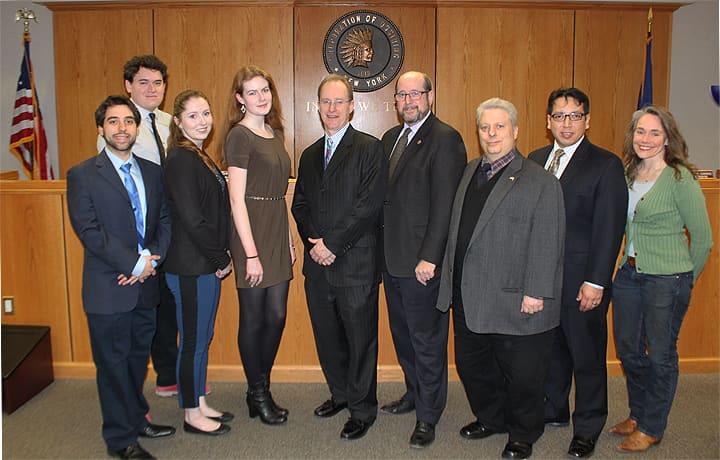The policy lays the groundwork for creating a community microgrid and competing for some of the $40 million that will be available under the NYPrize program Gov. Andrew Cuomo announced in his 2014 State of the State Address.
“Superstorm Sandy and Hurricane Irene awakened communities up and down the Atlantic Coast that they must be energy self-sufficient in order to protect key services that assure public safety,” said Michelle Land, director of the Pace Academy for Applied Environmental Studies, which launched the clinic in January.
“A microgrid is a locally based energy supply and distribution system that uses cutting-edge technologies to produce reliable power even when the rest of the grid goes down.”
The four undergraduate Pace students who are on the Energy Resilience Team worked closely with Pace Law's Energy and Climate Center, its Land Use Law Center and the village’s Planning Department.
The resolution by the village board enacting the new policy is a first step toward the development of its Energy Resiliency Strategy 2014, which will use microgrids to serve the village and collaborating public and private entities in times of emergency.
“Communities along the tidal Hudson are vulnerable to a new generation of coastal storms and hurricanes that are more destructive due to the effects of climate change,” said Land. “In the case of Ossining, essential facilities are located on or near the water’s edge and in harm’s way during extreme storm events.”
In adopting the resiliency strategy, the village trustees recognized the importance of a constant flow of power for essential village services and the economic and environmental benefits of these new technologies as well.
The adopted resolution can be found on the Environmental Policy Clinic’s blog.
Click here to follow Daily Voice Ossining and receive free news updates.


